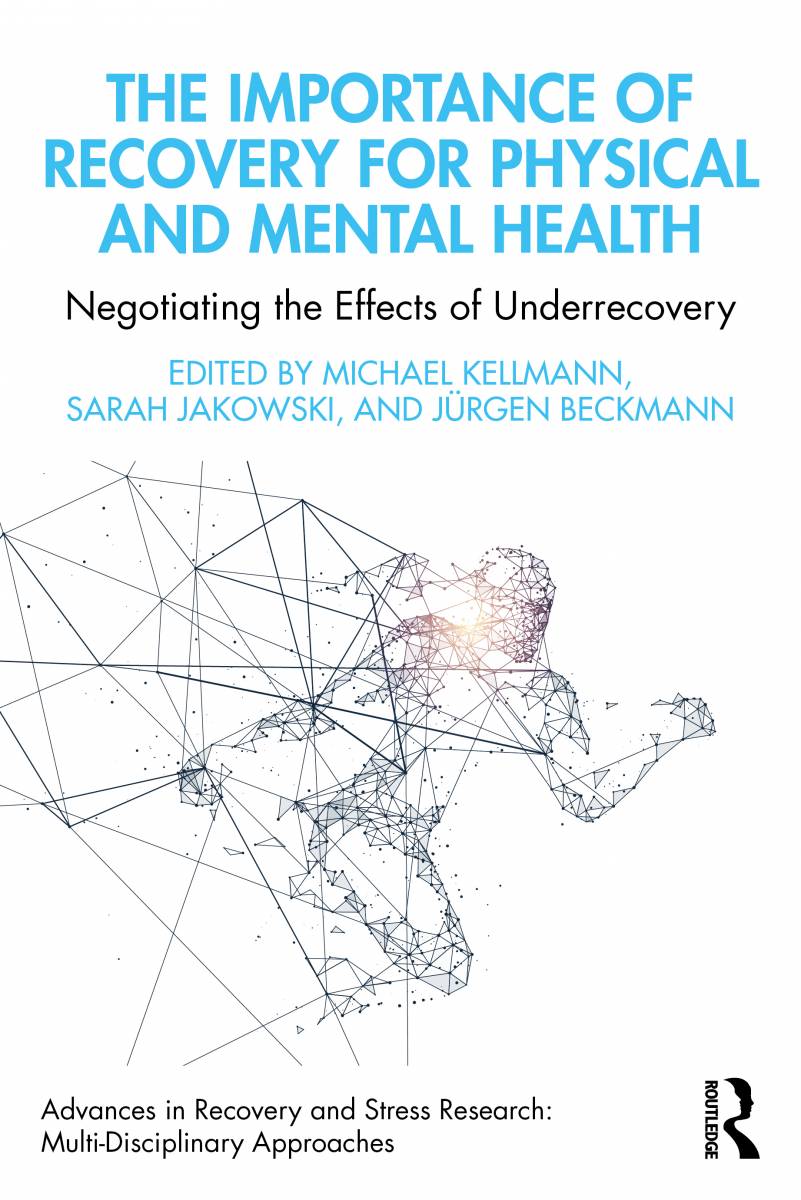Physio Nick Worth reviews a book titled 'The importance of recovery for physical and mental health'

The importance of recovery for physical and mental health: Negotiating the effects of underrecovery
Michael Kellmann, Sarah Jakowski and Jürgen Beckmann (editors)
Publisher: Routledge
ISBN: 9781032158686
Price: £96 (hardback); £31.99 (paperback); £27.99 (eBook)
This book provides a fascinating insight into various aspects of recovery from a range of differing angles. Chapters cover topics such as recovery for young people, adults, sports people and its effects on general health and wellbeing. The team of contributors has a very international flavour, which adds to the large amount of detail and knowledge contained within the book.
The book is very detailed and is packed with references to scientific articles. It is quite technical to read and has a multifaceted approach to sharing ideas about stress verses recovery.
It contains some innovative and interesting aspects to recovery that encompasses the psychological and physical impacts that stress has on our bodies. The text includes many physiological details which took a bit of time to consider and analyse when reading.
The text is split into four sections
- the role of recovery in physical and mental health: basic orientations (this section gives the reader a narrative and grounding in the essential elements of recovery for general health)
- psychological conceptualisation of recovery and its effects (this section highlights the importance of recovery, in particular the risks of underrecovery and its impact on people’s quality of life
- the physical side of recovery and its effects (sleep and the effect that physical activity has on the mental health of both young people and adults as part of a recovery strategy
- recovery in everyday life (this part has a section on long COVID recovery and advocates the use of exercise and recovery to prevent mental health issues in school and elite sports)
'Enlightening' level of detail
Several sections delved into the cellular level of recovery and how certain approaches were able to have a more or less significant effect on the body. The chapter discussing underrecovery in athletes and the risks that they may be opening themselves up to was interesting. The potential of physical and mental reduction in performance is something that is vital for elite level athletes and the detail about recovery aspects was enlightening.
The section on the negative impacts of injury on mental wellbeing was described through using case studies, which made this straightforward to read and had a real practical implication. It was clear in discussing how recovery helps to protect the immune system from both mental and physical stresses.
While the book is aimed at healthcare scientists and the wider scientific community, rather than physiotherapists, there is a lot to be gained by reading it
The relationship between physical exercise as a recovery strategy to improve mental health was explored. It could be assumed that physical activity may be regarded as adding stress to the body physically but the benefits of this clearly outweigh the potential risks. This covered both athletes and more sedentary individuals. The book described options of different activities that may bring positive benefits such as yoga as well as more vigorous sporting pursuits.
Spotlight on long Covid
The long Covid chapter enabled me to become far more aware and appreciative of the challenges that patients can face. The effects on different body systems and how these may be addressed gave me a real insight if I were to manage a patient with long Covid in the future. It offered advice about returning to sport and progression of exercise into normal activity levels.
While the book is aimed at healthcare scientists and the wider scientific community, rather than physiotherapists, there is a lot to be gained by reading it. The sheer volume of technical detail can be daunting initially, but the weight of academic study and rigour shines through and the reader will feel far better informed by delving into this book.
In reviewing the book, I developed a greater respect for the importance of seeing recovery in a wider context. It is the kind of text that I feel I will return to regularly for information on the methods that improve recovery and for new ideas about supporting the mental health of those I work with.
Nick Worth runs a physiotherapy clinic in Bolton and is the chair of the Society of Musculoskeletal Medicine (SOMM).
To read a PhysioUpdate Q&A with Nick, click here
Twitter: @Nickworthphysio
The book is the latest addition to a series titled Advances in Recovery and Stress Research: Multi-disciplinary approaches
Share it with














